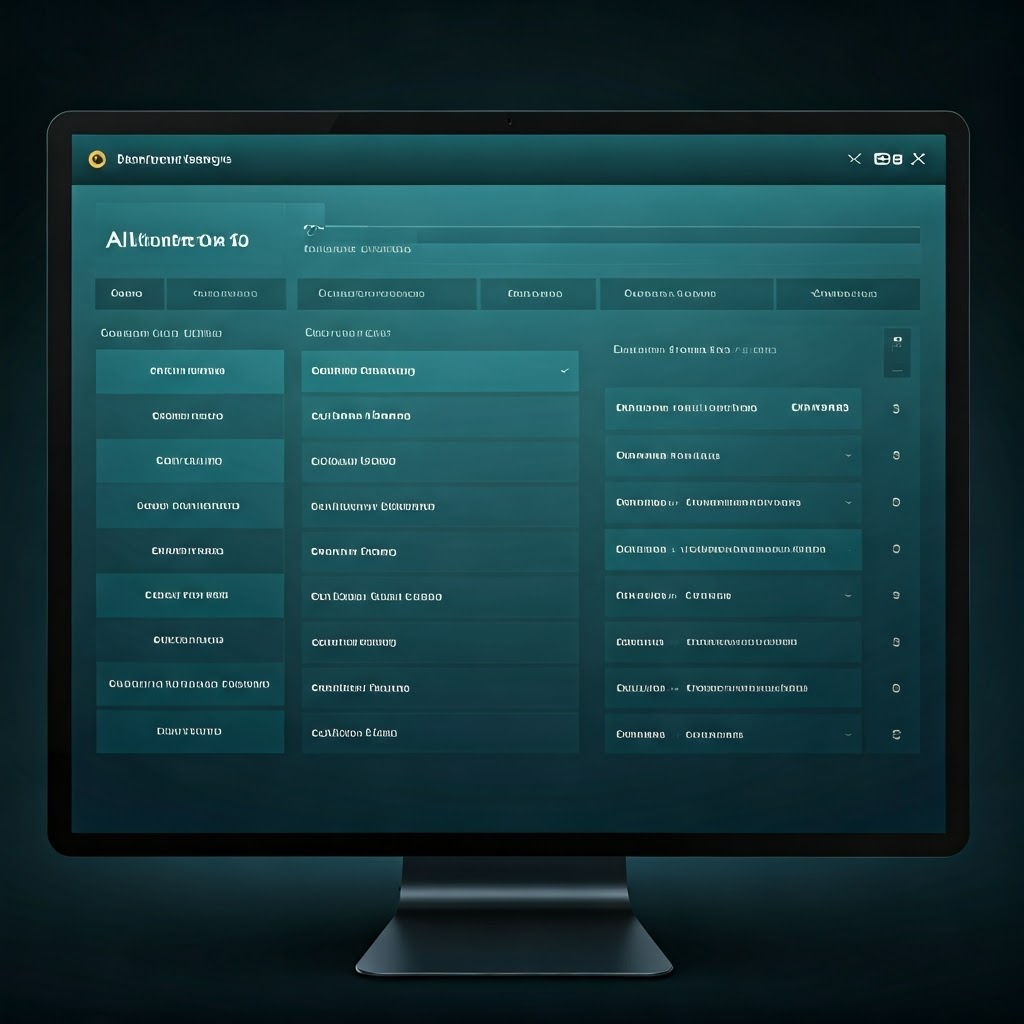Introduction
The real estate industry is going through a big change. Now, AI analytics are being added to real estate CRM systems. This change helps real estate professionals go beyond the old ways of handling data. They can now use predictive analytics to get ahead in a busy market. With AI development, real estate CRM software can find useful information from large amounts of data. This allows agents and agencies to improve their work, better serve their customers, and promote business growth.
Introduction to AI Analytics in Real Estate CRM

AI analytics is changing the way real estate works. It helps professionals get useful insights from data and use smart technology. Picture a system that not only keeps track of client information but also studies it. This allows it to find hidden patterns, see future trends, and suggest tailored plans. This is the power of AI in real estate CRM.
We no longer rely on manual calculations and guesses. AI can look at large amounts of data quickly and accurately. It uncovers insights that we might miss otherwise. This allows real estate agents to spot potential clients, tailor their interactions, and make smart choices based on current market trends.
The Evolution of CRM in the Dubai Real Estate Market
The Dubai real estate market is growing fast and changing a lot. It has seen big changes in Customer Relationship Management (CRM) systems. These systems started as simple tools to keep client details. Now, real estate CRM in Dubai uses AI analytics to offer advanced features.
In the past, CRM systems in Dubai focused mainly on storing client information. Now, with AI, these systems can look at past data, spot trends in customer habits, and provide useful insights.
This change helps real estate professionals in Dubai make choices based on data. They can improve their marketing and sales plans. This can lead to lasting business growth. Using AI analytics, CRM systems in Dubai are changing the way businesses work, helping them succeed in a tough market.
Core Principles of AI Analytics in CRM
AI analytics in CRM uses machine learning and data analysis to find important insights and guess future results. By looking at large sets of data, AI can spot patterns, trends, and connections that people may miss.
Predictive analytics, an important part of AI analytics, helps real estate professionals see what may happen in the market, how customers may act, and where good investment chances could be. This ability to predict is very helpful for making smart choices and staying ahead in a tough market.
The main ideas of AI analytics in CRM focus on using data to drive smart automation, make better choices, and improve customer experiences. By knowing these ideas, real estate businesses can tap into the full power of AI and gain an edge over the competition.
The Impact of AI Analytics on Real Estate CRM Efficiency

AI analytics is changing how real estate CRM works. It helps professionals work better and faster. This technology automates repetitive tasks and gives important insights. Because of this, real estate businesses can run more smoothly.
Think about a system where your real estate CRM can sort leads, personalize messages, and even guess the right time to follow up. This shows the power of AI analytics. It saves time for real estate agents, allowing them to focus on making connections and closing deals.
Streamlining Operations with AI-Driven Data Management
Efficient data management is essential for successful real estate operations. AI is changing how these tasks are done. AI-powered CRM systems help with data management. They make sure real estate professionals have the right and current information when it matters most.
AI helps in many ways. It takes care of things like data entry and organization. This helps real estate agents save time and reduces mistakes, keeping the data correct.
Here are some important ways AI-driven data management improves real estate operations:
- Automated Data Entry and Cleansing: AI programs can automatically gather, clean, and update client data. This cuts down on manual work and keeps the data accurate.
- Centralized Information Hub: AI CRM systems hold all client information in one place, making it easy for the whole team to access.
- Improved Data Accuracy and Consistency: By automating these tasks, AI reduces mistakes, which leads to better and more consistent data.
Enhancing Customer Relationship through Predictive Analytics
In the busy real estate market, building strong connections with customers is very important. Predictive analytics is becoming a key tool to help with this. By using the power of AI, real estate agents can understand what customers need, personalize their service, and provide great experiences.
With predictive analytics in CRM, agents can learn about customer choices and predict how they will act. This personal approach not only improves client relationships but also raises the chances of making a sale.
Additionally, predictive analytics helps real estate professionals spot clients who might leave and handle their concerns beforehand. By seeing problems before they happen, businesses can gain trust, improve customer loyalty, and develop lasting relationships.
Key Features of AI-Enhanced Real Estate CRM Software
AI-enhanced real estate CRM software is different from regular software. It includes smart automation and insights from data. This helps to improve operations and customer connections. These improved systems are changing how real estate companies interact with clients and run their businesses.
With tools for automatic lead scoring and custom recommendations, AI-powered real estate CRM software helps businesses excel in a tough market. Let’s look at some important features that make these systems unique.
Automated Lead Scoring for Targeted Marketing
Lead generation is really important for any real estate business. AI-powered real estate CRM systems are great at this by automatically scoring leads. They look at different things like people’s backgrounds, actions, and how they interact. Then, these smart systems give each lead a score, showing how likely they are to become a client.
With automated lead scoring, real estate agents can focus on leads that are more likely to bring value. This helps them spend their time and resources wisely, getting the best results from their marketing efforts.
Instead of wasting time on leads that aren’t a good fit, AI helps real estate professionals build strong connections with people who are truly interested and have a good chance of closing a deal.
Dynamic Recommendation Engines for Personalized Client Experiences
Gone are the times of basic property suggestions. AI-powered real estate CRM systems use smart recommendation engines to create a unique experience for each client. They suggest homes based on factors like budget, location, and what features a client wants. These smart systems work like virtual helpers, showing clients the homes of their dreams.
Recommendation engines give real estate agents a better view of what their clients need. This helps them suggest properties that fit well. This personalized touch saves clients time and makes their experience better, which means they are happier and more likely to recommend the service to others.
Think of a system that can suggest homes even before clients realize what they want. It does this by looking at their past choices and habits. This shows the power of AI in changing how real estate professionals match clients with the perfect homes.
Transforming Real Estate Marketing with AI Analytics

AI analytics is changing the game in real estate marketing. It changes how businesses connect with their audience and boost sales. Real estate professionals can use data insights to craft specific campaigns that speak to potential clients.
From predicting which leads are likely to convert to understanding market trends, AI helps marketers improve their strategies. They can use their resources better and get more value from their investments. Let’s look at how AI is changing the world of real estate marketing.
Predictive Lead Scoring to Identify Potential Buyers and Sellers
Predictive lead scoring is changing the game in real estate marketing. It helps gather accurate predictions about which leads are likely to become clients. By looking at past data, demographics, and what people do online, AI algorithms can find potential buyers and sellers with great accuracy.
This method allows real estate marketers to focus on important leads. They can spend time on those most likely to convert. Imagine knowing which leads are ready to buy or sell. This knowledge helps make marketing campaigns more effective.
Predictive lead scoring removes the guesswork in marketing. It changes how real estate businesses find and connect with leads. By reaching the right people with the right message, time and money are used better. This means marketing efforts can bring in more returns.
AI-Driven Market Trends Analysis for Strategic Planning
Staying ahead in the real estate industry is key for success. AI analytics helps by offering tools to make smart, data-based decisions. AI-driven market trend analysis helps real estate professionals see what is happening in the market, predict changes, and change their plans as needed.
AI algorithms look at large amounts of data to find new trends, estimate price changes, and see how the market is doing overall. These insights are very helpful when deciding on property investments, pricing, and marketing plans.
Think about having real-time market data. This data helps you find the best investment chances, set good prices, and create marketing messages that fit today’s market trends. This is the power of AI-driven market trend analysis. It changes how real estate businesses plan and make decisions.
Improving Client Engagement and Retention

In today’s tough real estate market, it is not enough to just get clients. Keeping them is just as important. AI helps real estate companies connect with clients better and keep them around by offering personalized experiences and meeting their needs.
With insights from AI, businesses can create special communication plans, automate follow-ups, and foresee when a client might leave. This way, clients feel appreciated and supported during their journey in real estate.
Personalization Strategies in Client Communications
Personalization is very important for building good relationships with clients. AI helps real estate businesses talk to clients in a deeper way. AI-powered real estate CRM systems use natural language processing. This helps them understand what clients like, how they feel, and how they communicate. This technology helps create personalized interactions that connect.
Think about a real estate CRM system that changes emails, messages, and phone calls to fit what each client wants. By dividing clients based on their needs and habits, AI helps real estate professionals send messages that get their attention and build stronger ties.
Using AI-driven real estate CRM systems for personalized communication helps real estate businesses connect with clients. This builds trust and loyalty, which can lead to better client retention rates.
Retention Models Predicting Client Needs and Preferences
Retaining current clients is usually cheaper than getting new ones. AI is changing how real estate businesses keep their clients. AI helps by looking at historical data, client behavior, and market trends. This way, it can predict what clients might need or want. It also helps to find and solve potential issues before they arise.
Think of a real estate CRM system that tells you when a client is about to list their property or buy something else. This allows you to reach out and offer your services and expertise in advance. These helpful insights allow real estate professionals to understand what clients need and give them better solutions, making clients happier overall.
When real estate businesses learn what keeps clients coming back, they can create focused campaigns. They can also offer personal rewards and solve possible concerns before they become problems.
Advanced Business Intelligence Solutions in CRM
AI-powered real estate CRM systems are changing how real estate companies collect, examine, and use data. These smart tools give useful insights, spot trends, and help real estate professionals make smart choices using real-time data.
They can create detailed reports and use predictive analytics. AI-driven CRM systems improve business intelligence a lot. This helps real estate businesses stay ahead in a fast-changing market.
Generating Actionable Insights from Real Estate Data
Data is only valuable if it gives you good insights. AI helps real estate professionals turn basic data into useful business intelligence. AI-powered real estate CRM systems look at large amounts of data, find patterns, and create detailed reports. These reports help you easily understand important key performance indicators.
Think about having dashboards that show you market trends, what clients are doing, and how your team is performing right away. This lets you make smart choices based on data. AI tools for business intelligence give you the insights you need to improve your strategies, spot new chances, and reduce possible risks.
When real estate businesses understand what leads to success and where they can improve, they can make better choices about marketing, resource use, and overall plans.
Leveraging Real-Time Reporting for Immediate Decision Making
In today’s fast-paced real estate market, having access to real-time information is crucial for making rapid, informed decisions. AI-powered real estate CRM systems provide real-time reporting and data visualizations, empowering real estate professionals to monitor key metrics, identify trends, and adapt to changing market conditions instantaneously.
Imagine having a dashboard that displays live updates on lead generation, client interactions, and market fluctuations, allowing you to adjust your strategies instantly. This real-time visibility enables data-driven decision-making and allows businesses to stay ahead of the curve.
Here’s an example of how real-time reporting aids immediate decision-making:
| Real-Time Metric | Insight | Decision |
| Lead Source Performance | Website leads converting at a higher rate | Allocate more budget to website optimization. |
| Client Engagement Levels | Clients responding positively to personalized emails | Implement personalized email marketing at scale. |
| Market Inventory Fluctuations | Inventory decreasing in a specific neighborhood | Target marketing efforts towards potential sellers in that area. |
The Future of AI in Real Estate CRM

The future of AI in real estate CRM is full of possibilities. As technology gets better, we will see smarter uses of AI. This will automate more tasks, improve decision-making, and change how clients experience services.
Using generative AI, deep learning, and predictive analytics will change how real estate companies work. This will help them succeed in a market that is more competitive and driven by data.
Next-Gen Technologies Shaping the Future of Real Estate CRM
The real estate industry is about to change a lot because of new technology. Tools like deep learning, natural language processing, and generative AI will help improve real estate customer relationship management (CRM). These new advances will help automate tasks, make data analysis better, and give clients a highly personalized experience.
Think about Real Estate CRM systems that can write text like a human, predict market trends accurately, and handle complex negotiations automatically. Deep learning will help systems see complex data patterns and find insights that might be missed.
As these technologies grow, we can expect a future where real estate businesses work faster and smarter than ever. Using next-gen AI in CRM will change the way agents connect with clients, run their businesses, and succeed in a market driven by data.
The Role of AI in Forecasting Dubai’s Real Estate Market Trends
The Dubai real estate market is very active. It can gain a lot from AI’s ability to make forecasts. AI can look at past data, economic signs, and new trends. This can help us understand where the market is headed.
Picture this: You have AI forecasts that show how property prices might change. They can also find the best areas for investment. Moreover, these forecasts can give advice on the best times to buy or sell. This insight will help investors, developers, and other real estate professionals make smart choices that will earn them more money.
Using AI for forecasts will help everyone in the Dubai real estate market. It will not just help individuals but can also make the whole sector more stable and help it grow.
Case Studies: Success Stories of AI in Real Estate CRM
The impact of AI on real estate CRM is clear. Many success stories are coming from across the industry. Real estate companies, big and small, are using AI to make their operations smoother, improve customer experiences, and grow significantly.
Both large real estate firms and small agencies are now using AI-driven Real Estate CRM systems as a sign of success. These examples show the real benefits of adding AI to real estate operations. They are creating new standards for how to be efficient, make profit, and keep customers happy.
How Dubai Real Estate Agencies Are Winning with AI CRM

Dubai’s real estate market is very competitive. It shows how powerful AI Real Estate CRM can be. Many top real estate agencies in Dubai are using AI solutions. This gives them an edge in lead generation, engaging customers, and improving their operations.
By using AI to score leads, give personalized suggestions, and analyze trends, these agencies attract more valuable clients. They close deals more quickly and grow at impressive rates. Their success proves that using AI brings an advantage in a fast-changing market like Dubai.
These agencies are keeping up with new technology. They are setting new standards for innovation. This shows a future where AI is not just an edge but needed in Dubai’s real estate world.
Global Inspirations: AI CRM Success Beyond Dubai
The success of AI CRM in real estate goes beyond just Dubai. There are many good examples from around the world. In busy New York and tech-filled Silicon Valley, real estate companies are using AI. They are changing how customers feel about their services and improving their work process like never before.
Big real estate companies are using AI Real Estate CRMs. This helps them manage large property collections, predict market trends accurately, and tailor their interactions with clients from different cultures. These success stories are important for the Dubai real estate market. They show that AI can really change the way the industry works on a global scale.
The rise of AI Real Estate CRM shows that the future of real estate is closely connected to smart automation and making decisions based on data.
Integrating AI Analytics into Your Real Estate CRM Strategy
Integrating AI analytics into your real estate CRM is now a must. It helps you stay competitive in today’s fast-changing market. This change needs a careful plan. You should choose the right AI tools and fit them well into your current work systems.
When you use AI, your real estate business can become more efficient. You can improve your relationships with customers. This will help your business grow steadily in the digital world.
Steps for Implementing AI into Existing CRM Systems
Implementing AI into your current CRM system is not as hard as it may seem. Here is a simple way to make sure you blend these technologies well and get great results from AI:
- Assess Your Needs and Goals: Find out which areas of your real estate business can benefit most from AI. Think about things like lead generation, customer engagement, or market analysis.
- Select the Right AI-Powered CRM: Pick a CRM system that fits your business goals. Look for one that offers the AI features you need, like predictive analytics, lead scoring, or automated marketing tools.
- Ensure Data Quality and Integration: Clean your existing data. Make sure that your CRM works well with other business systems. This will help AI algorithms work more accurately and effectively.
Overcoming Challenges in AI Integration
The benefits of adding AI to real estate businesses are clear. However, these businesses may face some challenges when trying to use AI. It is important to deal with these challenges early for successful use of AI. Some common challenges are:
- Data Privacy and Security: Real estate information is very sensitive. Businesses need to follow privacy laws and take strong steps to keep client data safe.
- Change Management and Adoption: It is normal for people to resist change. Using AI means helping your team understand its benefits. You need to provide training and make sure AI fits into their usual tasks.
- Cost Considerations and ROI: The long-term benefits of AI can be big. But, businesses must think about the costs of starting AI, keeping it running, and what they might earn back (ROI).
Maximizing ROI with AI-Driven Real Estate CRM
Investing in an AI-driven real estate CRM is a smart choice. To get the most out of your investment, you need to focus on data. This means tracking how well you are doing, looking at important numbers, and always improving your methods.
By checking how AI affects your real estate deals and knowing the costs and benefits, you can make sure your use of AI is successful. This will help your business grow steadily in the long run.
Measuring the Impact of AI on Real Estate Transactions
To show the real value of AI, you need to check how it affects your real estate transactions. By measuring important metrics, you can see the benefits of AI and find ways to improve.
Here are some metrics to track:
- Lead Conversion Rates: Look at how AI helps score leads and make personalized marketing. This can help turn leads into clients.
- Client Acquisition Costs: Study how AI helps with lead generation and automates marketing. This will show how much it costs to get new clients.
- Time to Close Deals: Check if AI tools help you close deals faster and more easily.
Cost-Benefit Analysis of AI in Real Estate CRM
Implementing AI in real estate CRM has both initial and ongoing costs. It’s important to do a careful cost-benefit analysis. This will help you see if the investment in AI makes financial sense and if it will pay off in the long run.
Think about these factors:
- Software and Implementation Costs: Look at what you will spend on buying or subscribing to AI CRM software. Also, consider costs for setting it up and making it fit with your current systems.
- Training and Support Expenses: Include costs for training your team to use the new AI features. You should also think about ongoing support needed for any technical problems or questions from users.
- Potential Cost Savings: Consider how AI can save money by automating tasks. This can lower labor costs, improve operations, and reduce mistakes, leading to big savings.
Conclusion
In the world of Real Estate CRM, AI analytics offer a great change. They use smart insights and personal touches to make work easier and improve how customers feel about their experience. The future is full of chances for anyone ready to accept the power of AI to change market trends and build better client relationships. Many success stories and ideas from around the world show why AI should be part of your CRM strategy. To get the most out of it, start your innovation by adding AI to your real estate CRM system. Accept the future now and change how you work in real estate. Contact us to start this journey towards progress and success.
Frequently Asked Questions
How Can AI Analytics Improve Real Estate CRM Efficiency?
AI analytics improve the efficiency of Real Estate CRM by using predictive analytics, data analysis, and automation. AI handles repetitive tasks. This lets real estate agents spend more time on client interactions and making smart decisions.
What Are the Key Features of AI-Enhanced CRM for Real Estate?
Key features of AI-powered real estate CRM are useful tools. These include automated lead scoring, tailored recommendations, predictive analytics, and data visualization tools. They all aim to boost efficiency and make clients happier.
How Does AI Analytics Aid in Client Retention and Satisfaction?
AI analytics use data and models to predict what clients might need. This helps in talking to clients early, offering personal service, and creating custom solutions. In the end, this boosts client satisfaction and keeps them coming back.
Can Small Real Estate Agencies in Dubai Benefit from AI CRM?
AI CRM is a great choice for small real estate agencies in Dubai. It is both affordable and easy to scale. This helps these agencies gain a competitive edge. They can use automation and data analysis to improve client experiences.
What Are the First Steps Towards Integrating AI into My Real Estate CRM?
Start by looking at your business needs and goals. Next, find and choose an AI-powered CRM that fits what you need and what you can spend. Make sure you think carefully about how to introduce new technology.


